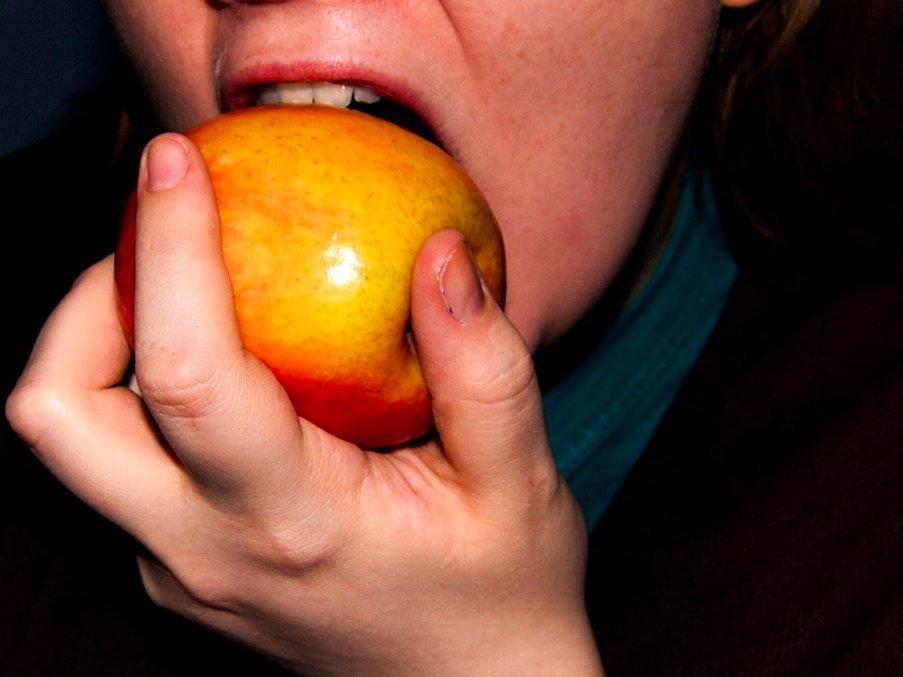Five-a-day becomes 10-a-day as scientists urge people to eat more fruit and vegetables
Researchers analyse data from 95 studies concerning fruit and vegetable intake

Increasing the portions of fruit and vegetables consumed each day from five to 10 could significantly reduce a person's risk of heart disease and cancer, a new study has found.
While eating the recommended five a day still helps reduce disease risk, the highest benefits are seen when people consume double that, researchers found.
The study, published in the International Journal of Epidemiology, also identified which fruit and vegetables provided the greatest protection against disease.
Researchers from Imperial College London analysed data from 95 studies concerning fruit and vegetable intake.
The team found that although even the recommended five portions of fruit and vegetables a day reduced disease risk, the greatest benefit came from eating 800g a day - assuming that 80g is one portion - compared to people who ate none at all.
But even smaller intakes had benefits - a daily intake of two-and-a-half portions was associated with a 16 per cent reduced risk of heart disease, a 4 per cent lower risk of cancer and a 15 per cent reduction in the risk of premature death.
Consuming 10 portions a day was associated with a 24 per cent reduced risk of heart disease, a 33 per cent lower risk of stroke, a 28 per cent reduced risk of cardiovascular disease, a 13 per cent reduced risk of cancer, and a 31 per cent reduction in the risk of dying prematurely.
The authors estimate that if everyone on the planet ate 10 portions of fruit and vegetables each day then 7.8 million premature deaths could be prevented worldwide.
The research team also found that apples and pears, citrus fruits, salads and green leafy vegetables such as spinach, lettuce and chicory, and cruciferous vegetables such as broccoli, cabbage and cauliflower may help protect against heart disease, stroke, cardiovascular disease, and early death.
And cancer risk could be reduced by eating green vegetables, such as spinach or green beans, yellow vegetables, such as peppers and carrots, and cruciferous vegetables.
Lead author Dr Dagfinn Aune, from the School of Public Health at Imperial, said: "We wanted to investigate how much fruit and vegetables you need to eat to gain the maximum protection against disease, and premature death.
"Our results suggest that although five portions of fruit and vegetables is good, 10 a day is even better.
"Fruit and vegetables have been shown to reduce cholesterol levels, blood pressure, and to boost the health of our blood vessels and immune system.
"This may be due to the complex network of nutrients they hold.
"For instance they contain many antioxidants, which may reduce DNA damage, and lead to a reduction in cancer risk.
"It is clear from this work that a high intake of fruit and vegetables holds tremendous health benefits, and we should try to increase their intake in our diet."
Meanwhile, a separate story published in the journal Thorax, found that a fruit and veg-rich diet is linked to much lower risk of chronic lung disease.
Experts assessed information on the health and dietary intakes of more than 44,000 men from Sweden.
During follow-up, almost 2,000 cases of chronic obstructive pulmonary disease (COPD) were diagnosed.
The authors found that those eating five or more daily servings were 35 per cent less likely to develop lung disease than those eating two or fewer daily servings.
Each additional serving was associated with a 4 per cent lower risk of COPD in former smokers and an 8% lower risk in current smokers.
The British Thoracic Society stressed that people who smoke should know that kicking the habit is the most effective way of reducing their chances of developing COPD.
Join our commenting forum
Join thought-provoking conversations, follow other Independent readers and see their replies
Comments